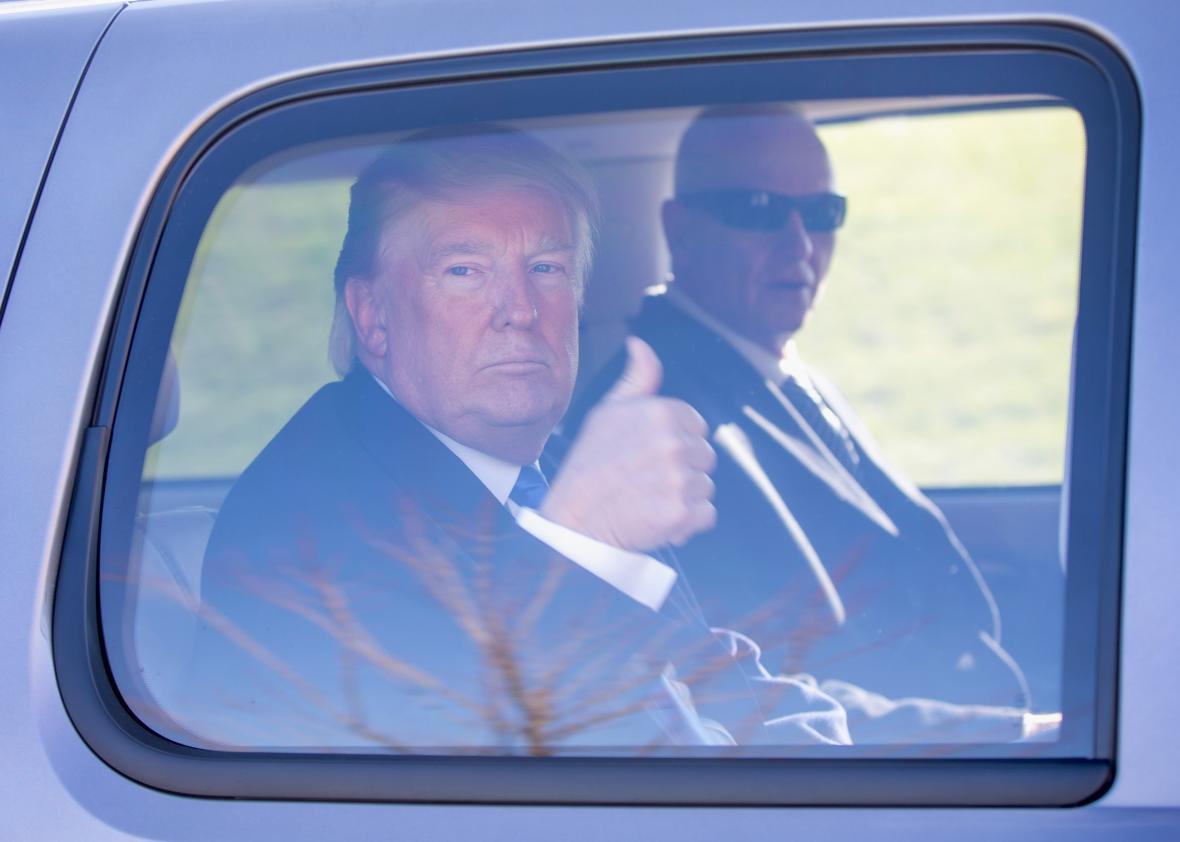It’s well-understood at this point that consistency is not one of Donald Trump’s virtues. He regularly changes tack—assuming that a specific tack can even be identified amid his often rambling statements—on policy questions both foreign and domestic. A minor example of this rhetorical swerving occurred on Thursday: In a morning talk show appearance, Trump surprised some viewers by expressing opposition to North Carolina’s transphobic bathroom law and then, just a handful of hours later on Sean Hannity’s Fox News show, seemed to soften his earlier statements with a vague gesture toward the need for local self-determination. The Daily Beast described the evening words as “backtracking” with regard to LGBTQ support—an interpretation that, given that the city of Charlotte had determined it wanted nondiscrimination protections that the state then revoked with HB2, may or may not be accurate. Who can tell? In any case, “backtracking” assumes that, when it comes to LGBTQ rights, Trump was ever on any track to begin with.
In a feature published on Friday, New York Times reporter Maggie Haberman advances the notion that the GOP front-runner has been, generally speaking, “more accepting” of queer people than his party brethren. While acknowledging that Trump holds a “traditional” view of marriage, Haberman recalls Trump’s early support for federal LGBT nondiscrimination protection and quotes a number of friends and colleagues who characterize Trump as being warm toward gay people, including employees and members of his social circle. He’s even been to at least one same-sex wedding ceremony, and he has, according to the author, “avoided attacking or offending gay men and lesbians during the campaign.”
That last claim is a matter of perspective; as Michelangelo Signorile has been pointing out for some time now, Trump is skilled at the dog-whistle routine around queer issues, particularly when in front of evangelical audiences or their narrowly focused media. That stipulated, a certain amount of cynical calculation does not equate to the rank bigotry we’ve heard from other candidates. So to what should we attribute this moderate support? “His ease with gay people does not seem to be the result of deep soul searching,” Haberman writes, “but, rather, the product of the Manhattan social and political world he has inhabited the past five decades.” This reasoning is unsurprising, and echoes the reading of Trump my Slate colleague Mark Joseph Stern offered last December. More useful is Haberman’s other explanation: “Friends say he also views gay rights through the lens of a bottom line-minded businessman.”
If there’s any consistency to be found in Trump’s approach to LGBTQ issues and people, it’s in this—gays are an economic force, especially in New York, and in his life as a businessman, Trump would have been foolish to shun them simply as a matter of pragmatism. But it would also be foolish to mistake that savvy for true acceptance, as Haberman’s article does to a degree. Trump is a creature of convenience, and the moment that his campaign’s calculations suggest that his milquetoast support of queer people is less valuable than a more conservative-friendly attack, you can bet he’ll change course. He may not be a bigot, but he’s hardly a sure ally.
It’s worth noting that the mainstream gay rights movement has encouraged this kind of “respect our dollars” relationship over the last few decades—and in the contingency of Trump’s “acceptance,” you can see the problem with that strategy. When support for LGBTQ equality is a matter of money—whether for a powerful individual like Trump or, more crucially, the many corporations who are for the moment fueling battles like the one in North Carolina—the commitment is subject to the fickle whims of the market of consumer opinion. It’s only when that support is based in a deep ethical consideration that you can really take it to the bank.
